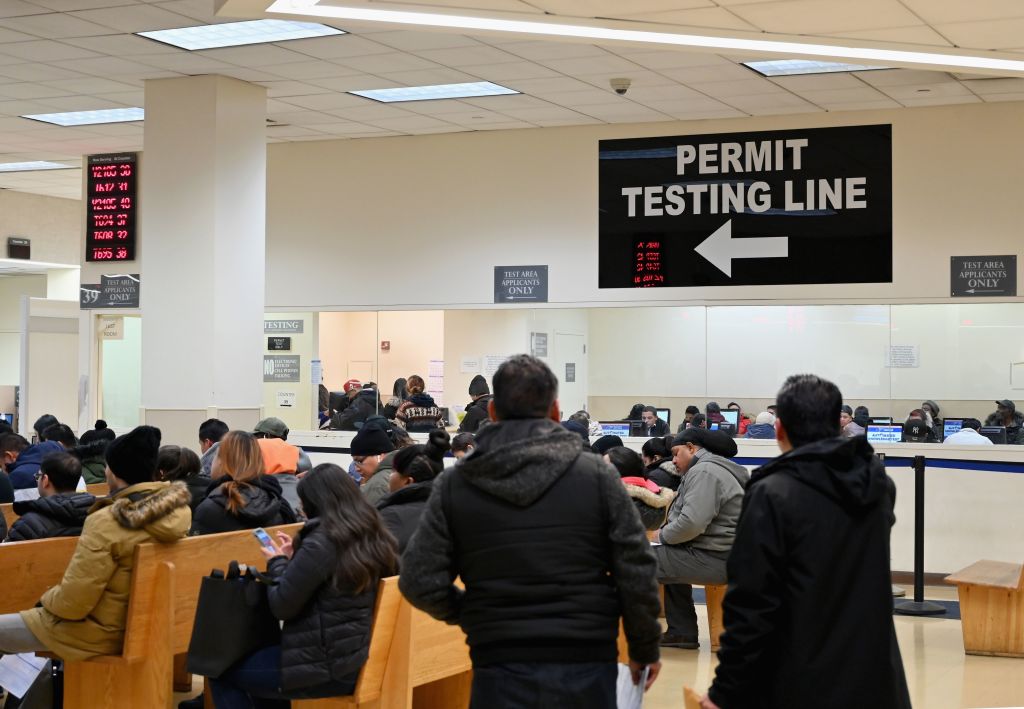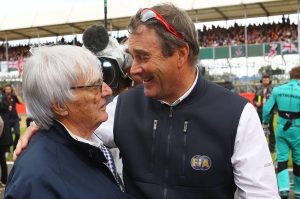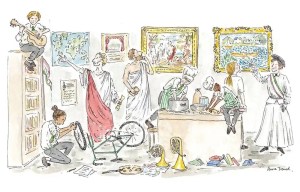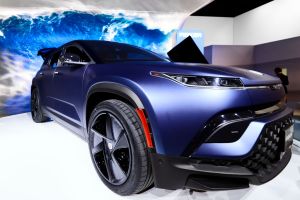I remember still the foreboding language and tone when I was learning to drive in New Jersey over a decade ago.
First, you needed to earn your permit. Never forget that driving is a privilege, not a right (which only works if driving is an option, not effectively a requirement, though drivers ed isn’t in charge of land use). After your permit, you start with your probationary license. And in a twist that somehow passes civil liberties muster, you’re not even allowed to appeal a ticket issued to you during your probationary period. You feel a bit under suspicion until you finally get that license.
Yet for all that, it’s still, basically, a lot of bureaucracy and paper-pushing. Heck, nobody verifies whether you’ve actually been practicing driving while you hold your learner’s permit. All you really have to do is pass the written test and a road test, which in New Jersey, at least when I was learning, is a closed-course, off-road rehearsal where you’re the only car around. By far the hardest part of it is the parallel parking, which you’ll barely ever need anyway. See again: land use.
The whole process is menacing but easy, which seems to describe so many exercises that government puts us through. (I understand that applying for a federal job is a similar deal.)
Far more useful in actually teaching me to drive were my dad’s lessons. He never had an accident, but he also taught me “there’s no such thing as an accident.” He taught me to view driving as a grave responsibility, not unlike handling a firearm. In the wrong hands — or in the hands of someone not paying full attention — a car can be a deadly weapon.
This brings to mind the way many progressives talk about cars and driving. Journalist Jessie Singer, for example, recently published There Are No Accidents, a book probing the idea of traffic “accidents” as a sort of convenient fiction for absolving motorists (and also road designers and traffic engineers) of responsibility. Reads the blurb from publisher Simon and Schuster:
As the rate of accidental death skyrockets in America, the poor and people of color end up bearing the brunt of the violence and blame, while the powerful use the excuse of the “accident” to avoid consequences for their actions. Born of the death of her best friend, and the killer who insisted it was an accident, this book is a moving investigation of the sort of tragedies that are all too common, and all too commonly ignored.
A few years ago, Senator Elizabeth Warren tweeted, “Traffic violence kills thousands and injures even more Americans every year. On World Day of Remembrance for Traffic Crash Victims, I’m sending my love to the families and friends of those who have lost loved ones. It’s time to #EndTrafficViolence.”
Pedestrian and cyclist advocates on Twitter often admonish news reports with the corrective phrase “crash not accident,” or offer rewritten headlines that turn the passive voice into the active voice: so “Pedestrian struck by vehicle” becomes “Motorist strikes pedestrian.”
To a conservative, this can all look of a piece with trendy progressive politics and a “war on cars.” Leading with a racial angle; coming up with scary new names for things we’re all familiar with; policing language. Many would call it “woke.”
It can be easy to forget there’s a real issue of life and death underneath it all. I think about how similar it is to my father’s driving lessons. My father isn’t woke, and he isn’t much of an urbanist or expert in pedestrian advocacy (except inasmuch as he follows my work). But he taught me not to see a car as a toy, and to never forget how dangerous driving can be. He didn’t dislike cars; he respected them.
Again, think of how a serious, mature gun owner thinks about their guns. Nothing in drivers ed or the learner’s permit test really drove that home.
I like cars. I like driving. And I don’t call myself a progressive. But I try to see past the political veneer. When you get behind the wheel, you’re not playing a video game; you can kill someone. You’re responsible for what you do. What’s more conservative than that?


















